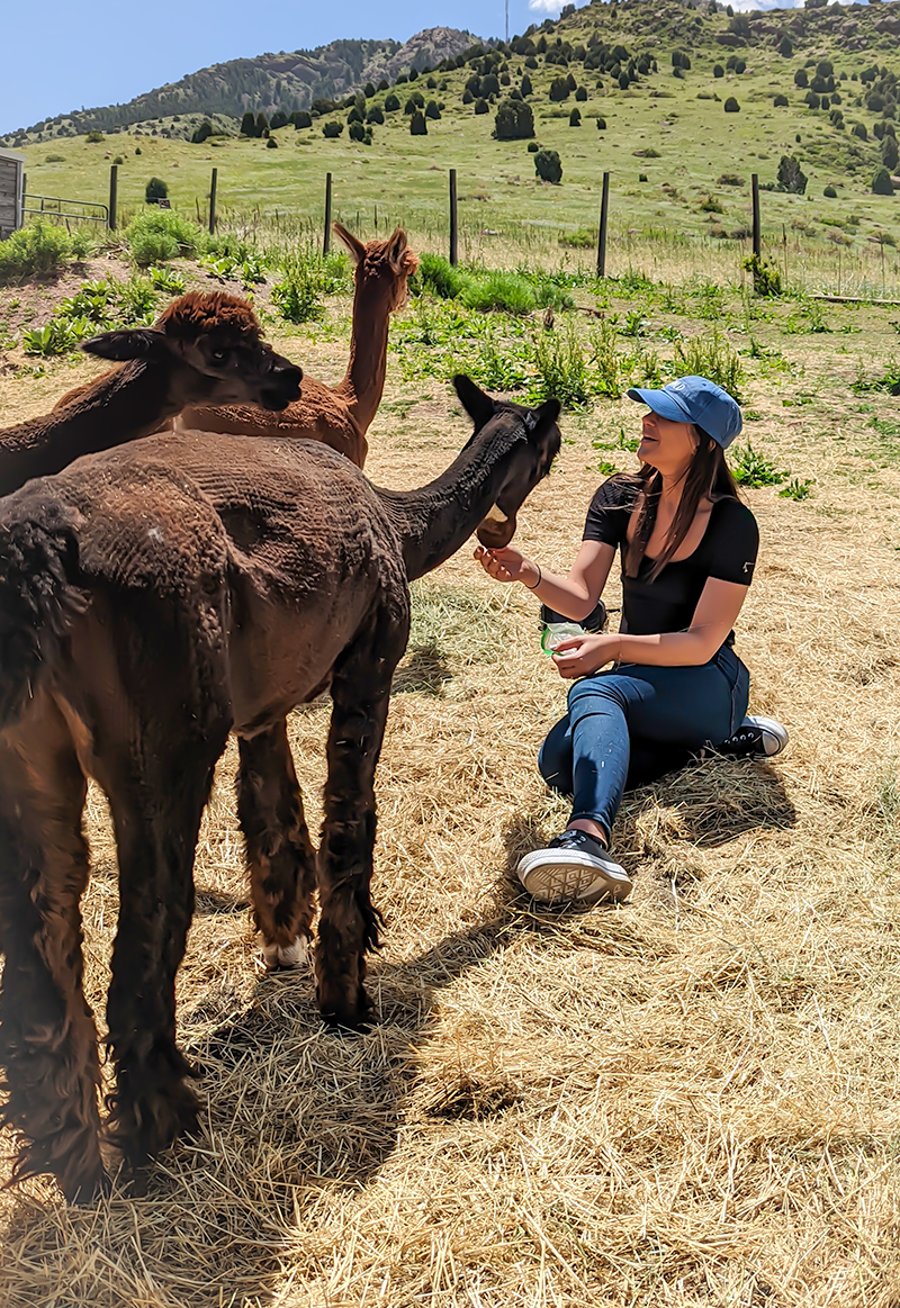Denver, Colorado alpaca experiences right now: Adorable, docile and soft, alpacas are prized as pets and cattle around the world. There are no wild alpacas. Alpacas are domesticated versions of vicuñas, South American ruminants that live high in the Andes. Alpacas are related to llamas, which are domesticated versions of another wild Andean ruminant, the guanaco. While llamas are used as pack animals, alpacas are raised mainly for their soft wool. Guanacos and vicuñas are found throughout the Andes Mountains. They are descended from camelids that developed in North America and migrated to South America 3 million years ago, according to Phil Switzer, an alpaca breeder based in Colorado. These animals evolved into guanacos and vicuñas, and about 6,000 years ago, people in the Andes began to domesticate them. There are two breeds of alpaca, the Huacaya and the Suri. Huacaya alpacas are more common, according to Switzer. Read even more info at alpaca adventures package in Colorado.
Additionally, if you have any accessibility concerns that make hiking impossible, then there are also places to sit down next to the alpacas, which makes this activity available to everyone regardless of their ability or needs. The Smooth Alpaca Experience just so happens to have scenic mountain views of Red Rock Park. Yes, that’s right, the iconic Red Rocks Park and Amphitheatre where hundreds of concerts are held each year. Combine a visit to the venue with an alpaca experience. When you go behind the scenes on the ranch, you learn about much more than just the animals. You have the opportunity to talk about the economy, trade, production, local handmade goods, and so much more.
For many years, zoologists assumed alpacas and llamas had descended from guanacos, and they were classified in the genus Lama. However, in a 2001 paper titled “Genetic analysis reveals the wild ancestors of the llama and the alpaca” in the journal Proceeding of the Royal Society B, researchers showed there is “high genetic similarity” between the alpaca and the vicuña, and between the llama and the guanaco. They recommended that the alpaca be reclassified as Vicugna pacos.
How much space does it take to raise an alpaca? Alpacas are environmentally friendly and require less pasture and food compared to other livestock. Stocking density impacts the health of the animal, so owners are encouraged to carefully assess their space. Vegetation, access to food and water, and shelter are some factors that influence the amount of space needed. Consult with your local agriculture authorities and breeders for specific recommendations for your area. Are alpacas clean animals? Yes, they are much cleaner than most livestock. Alpacas have a minimal aroma and tend to attract fewer flies in the summertime than other forms of livestock. Alpacas often defecate in communal dung piles. There may be three or four of these areas in a pasture. This makes for easy clean-up, reduced opportunity for parasites, and better overall hygiene in the herd.
Are alpacas an “exotic species,” or are they considered simply “livestock?” Alpacas have been raised as domestic livestock for thousands of years. Since the end-product of alpacas is their fleece, like sheep, they are classified as livestock by both the United States and Canadian federal governments. Do alpacas spit? All members of the camel family use spitting as a means of negative communication. They do get possessive around food, and may express annoyance by spitting at other alpacas that they perceive are encroaching on “their” food. Also, they often spit at one another during squabbles within the herd (usually involving two or more males). From time to time alpacas do spit at people on purpose, but it is more common that humans get caught in the crossfire between alpacas, so it’s best to study their behavior and learn to avoid the most vulnerable situations.
Get ready for an Alpaca Adventure ! A Wildly Immersive and Hilarious Alpaca Adventure Perfect For All Ages : Embark upon an unforgettable magical experience with affectionate Alpacas, and explore the scenic mountain views of Red Rocks Park. We offer truly unique experiences that gets you up-close with these majestic friends. You’ll be entertained and educated on their habits, diets, and life on the ranch as you discover what makes these creatures so special. Find even more info at meetalpacas.com.
Alpacas have two sets of teeth for processing food. They have molars in the back of the jaw for chewing cud. In the front, alpacas have teeth on the bottom only and a hard gum (known as a dental pad) on the top for crushing grain, grass, or hay. Unlike goats and sheep that have long tongues which can rip plants out of the ground, alpacas have short tongues and nibble only the tops of grasses and other plants. This results in less disturbance of the vegetation. Alpacas will often eat shrubs or the leaves from trees if given the opportunity. This requires monitoring to ensure they do not consume harmful products.
